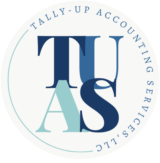While many people may have health on the top of their resolution list, it is not uncommon for aspiring entrepreneurs to have opening a business at the top of their New Year resolution list. According to startupnation.com, January is one of the busiest months for incorporation filings across the country.
If you are planning to start a business this year, we suggest meeting with an accounting professional to discuss the key items on your Financial To-Do list, which include:
Apply for your Employer Identification Number
This 9-digit number is assigned by the IRS and is used to identify employers for tax purposes. Even if you do not plan to have employees, you will still need to apply for this number as this is the primary way your business will be identified by the IRS. For more detailed info, visit the IRS page here.
Select Your Accounting Software (and learn how to use it)
Quickbooks is a common and solid place to start, but there are several other business accounting applications to consider, like Xero, Freshbooks, Wave and more. Each one has valuable features that most platforms carry as well as unique features. Talk to your accountant to see which will work best with your industry and have them assist in setting up the software to meet your specific business needs. Taking care of this step early on can save you time and money, not to mention future headaches.
Decide how you will bill
Seems like an easy one, right? There is actually a bit more to consider here than you might think.
If you have a product-based business, this may be straight-forward. If you do your market research and know what comparable products are being sold for, you have a good idea of what you should be charging. If you provide a service, this can be a bit more complex. Will you be billing a flat fee for your service, or does it make more sense to bill hourly or on a project basis? Even in the same industry, individual businesses may vary. For example, some accountants bill a flat rate each month to allow their clients to have a predictable bill every month, while others will bill on a per hour basis, which may result in varying invoices each month. There are also others that will charge a project rate for finite projects, like annual tax preparation. You need to decide what will work best for your business as well as your clients. Finding the right billing structure may take some trial and error, so be prepared to be flexible.
Determine your payment terms
Generally, this applies to service-based businesses, but can also be applicable to all businesses. Will you require a deposit before services performed or products ordered? How long will you allow your clients to pay an invoice? As a new business, you may want your cash sooner than later, but you may want to consider how your client will use your services/products. Are you providing a product that will be resold, which means it make take your client time to realize the financial benefit of your product? On the other side, if you are a consultant, you may have already performed your services, so you may consider having payment due upon receipt of invoice. Finally, consider if you will need different terms for different clients. While you may have general terms for the majority of your client base, you made need to allow for special considerations. For example, larger clients, like big corporations or government entities may dictate to you the terms they will pay on.
Bottom line, you need to decide what you are comfortable with and what makes sense for your industry and customer base.
Estimated tax payments
Most business take 2-3 years to become profitable and, in that case, estimated tax payments may not be an issue. However, if are fortunate enough to have your business is booming in the first year, consult with tax accountant by mid-year to discuss how you are doing and to create a tax plan. Having a tax strategy and making estimated tax payments can help you prevent a future tax burden and potential fees.
Setting up a business for success requires a lot of groundwork to be covered, especially on the financial side. In our next blog, we will cover additional areas to consider such as employees, expenses, and gross receipts tax. While it may be tempting to address some of these issues later, the foundation you set up now can help you be successful in the future.
If you need assistance establishing your business’ accounting foundation, contact us at (505) 850-3908 or EstelaOms@tallyupaccounting.com.

